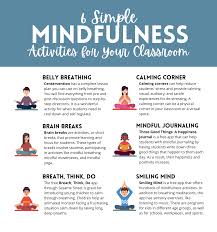The Importance of Engaging in Activities for Overall Well-Being
Activities play a crucial role in enhancing our physical, mental, and emotional well-being. Whether it’s participating in sports, pursuing hobbies, or engaging in social events, staying active is key to leading a fulfilling life.
One of the primary benefits of engaging in activities is the positive impact on physical health. Regular exercise, whether through organized sports or recreational pursuits, helps improve cardiovascular health, strengthen muscles, and boost overall fitness levels. Additionally, staying active can help prevent chronic conditions such as obesity, diabetes, and heart disease.
Furthermore, activities have a profound effect on mental health. Participating in activities that we enjoy can reduce stress levels, alleviate symptoms of anxiety and depression, and enhance cognitive function. Whether it’s painting, gardening, or playing a musical instrument, engaging in hobbies can provide a much-needed outlet for self-expression and creativity.
Social activities also play a vital role in fostering connections with others and combating feelings of loneliness and isolation. Joining clubs, volunteering in the community, or simply spending time with friends and family can boost our sense of belonging and strengthen our social support networks.
In essence, activities are not just pastimes but essential components of a healthy lifestyle. By incorporating various activities into our daily routine, we can improve our physical fitness, mental well-being, and overall quality of life. So go ahead – explore new interests, challenge yourself with different pursuits, and reap the countless benefits that engaging in activities has to offer.
9 Benefits of Engaging in Activities: From Health to Happiness
- Improves physical health and fitness
- Enhances mental well-being and cognitive function
- Provides a creative outlet for self-expression
- Reduces stress and anxiety levels
- Strengthens social connections and relationships
- Boosts self-confidence and self-esteem
- Promotes a sense of accomplishment and fulfillment
- Offers opportunities for learning new skills and interests
- Helps combat feelings of loneliness and isolation
Potential Drawbacks of Activities: Physical Risks, Financial Costs, and Stress Management Challenges
- Some activities can be physically demanding and may pose a risk of injury if proper precautions are not taken.
- Engaging in certain activities may require a financial investment for equipment, memberships, or participation fees.
- Balancing multiple activities can lead to feelings of overwhelm and stress if not managed effectively.
Improves physical health and fitness
Engaging in activities is a powerful way to enhance physical health and fitness. Whether it’s through regular exercise, sports participation, or outdoor adventures, staying active helps strengthen muscles, improve cardiovascular health, and boost overall fitness levels. By incorporating physical activities into our routine, we not only increase our energy levels and stamina but also reduce the risk of chronic conditions such as obesity, diabetes, and heart disease. Prioritizing physical activity is a proactive step towards achieving optimal health and well-being.
Enhances mental well-being and cognitive function
Engaging in activities has a profound impact on mental well-being and cognitive function. By participating in activities that stimulate the mind, such as puzzles, games, or creative hobbies, individuals can enhance their cognitive abilities, improve memory retention, and sharpen critical thinking skills. Furthermore, staying active mentally through various activities can help reduce the risk of cognitive decline and boost overall mental acuity. The sense of accomplishment and satisfaction gained from mastering new tasks or challenges also contributes to a positive mindset and emotional well-being. In essence, incorporating activities that promote mental stimulation is not only enjoyable but also essential for maintaining a healthy and vibrant mind.
Provides a creative outlet for self-expression
Engaging in activities provides a valuable creative outlet for self-expression, allowing individuals to channel their thoughts, emotions, and ideas into tangible forms. Whether it’s through art, music, writing, or other creative pursuits, activities offer a platform for individuals to explore their innermost thoughts and feelings in a meaningful way. This process of self-expression not only fosters personal growth and introspection but also enables individuals to communicate and connect with others on a deeper level. By tapping into their creativity through various activities, individuals can unleash their imagination, express their unique perspectives, and cultivate a sense of fulfillment and authenticity in their lives.
Reduces stress and anxiety levels
Engaging in activities has been shown to be a powerful antidote to reducing stress and anxiety levels. Whether it’s going for a run, practicing yoga, or immersing oneself in a creative hobby, participating in activities can help calm the mind, release tension, and promote a sense of relaxation. By focusing on the present moment and channeling energy into enjoyable pursuits, individuals can effectively manage stress and anxiety, leading to improved mental well-being and a greater overall sense of peace and tranquility.
Strengthens social connections and relationships
Engaging in activities strengthens social connections and relationships by providing opportunities to bond with others over shared interests and experiences. Whether it’s joining a sports team, participating in a book club, or volunteering for a cause, these activities create a sense of camaraderie and belonging that fosters deeper connections with friends, family, and the community at large. By engaging in activities together, individuals can build trust, empathy, and mutual respect, ultimately strengthening the fabric of their relationships and enhancing their social support networks.
Boosts self-confidence and self-esteem
Engaging in activities has the remarkable ability to boost self-confidence and self-esteem. When we participate in activities that challenge us, allow us to showcase our skills, or provide a sense of accomplishment, we experience a surge in confidence. Whether it’s mastering a new hobby, excelling in a sport, or achieving a personal goal, these achievements contribute to a positive self-image and a greater belief in our abilities. By regularly engaging in activities that affirm our strengths and capabilities, we can cultivate a strong sense of self-worth and empowerment that radiates into all aspects of our lives.
Promotes a sense of accomplishment and fulfillment
Engaging in activities promotes a profound sense of accomplishment and fulfillment as individuals set goals, overcome challenges, and witness their progress firsthand. Whether it’s completing a challenging hike, mastering a new skill, or achieving a personal best in a sport, the satisfaction that comes from accomplishing something meaningful is unparalleled. This sense of fulfillment not only boosts self-confidence and self-esteem but also motivates individuals to continue striving for excellence in other areas of their lives.
Offers opportunities for learning new skills and interests
Engaging in activities offers valuable opportunities for learning new skills and interests. Whether it’s trying out a new sport, taking up a creative hobby, or attending a workshop, each new activity presents a chance to expand our knowledge and capabilities. By stepping out of our comfort zones and embracing unfamiliar pursuits, we not only acquire practical skills but also discover passions we never knew existed. This continuous process of learning and growth through activities enriches our lives, broadens our horizons, and keeps us motivated to explore the endless possibilities that the world has to offer.
Helps combat feelings of loneliness and isolation
Engaging in activities serves as a powerful antidote to feelings of loneliness and isolation by providing opportunities to connect with others and cultivate meaningful relationships. Whether through joining social clubs, participating in group fitness classes, or volunteering in the community, activities offer a platform for building bonds and fostering a sense of belonging. By sharing experiences and interests with like-minded individuals, individuals can combat feelings of solitude and create a supportive network that enriches their lives.
Some activities can be physically demanding and may pose a risk of injury if proper precautions are not taken.
Engaging in certain activities that are physically demanding can present a con in the form of potential injury risks if proper precautions are neglected. Whether it involves high-impact sports, strenuous workouts, or adventurous outdoor pursuits, failing to adhere to safety guidelines and precautions can lead to accidents and injuries. It is essential for individuals participating in such activities to prioritize their safety by wearing appropriate gear, receiving proper training, and being mindful of their physical limitations to minimize the risk of harm and ensure a safe and enjoyable experience.
Engaging in certain activities may require a financial investment for equipment, memberships, or participation fees.
Participating in certain activities may present a significant financial barrier, as they often necessitate investments in equipment, memberships, or participation fees. This financial aspect can limit access to certain pursuits for individuals with limited resources, potentially excluding them from enjoying the benefits of these activities. The cost associated with engaging in specific hobbies or sports can pose a challenge for those who are unable to afford such expenses, highlighting the inequality that exists in access to recreational opportunities based on financial means.
Balancing multiple activities can lead to feelings of overwhelm and stress if not managed effectively.
Balancing multiple activities can indeed pose a significant challenge, often resulting in feelings of overwhelm and stress if not managed effectively. Trying to juggle various commitments, such as work, family responsibilities, hobbies, and social engagements, can lead to a sense of being spread too thin. This can impact one’s mental well-being and overall quality of life, making it crucial to prioritize tasks, set boundaries, and practice effective time management strategies to prevent burnout and maintain a healthy balance between different activities.




